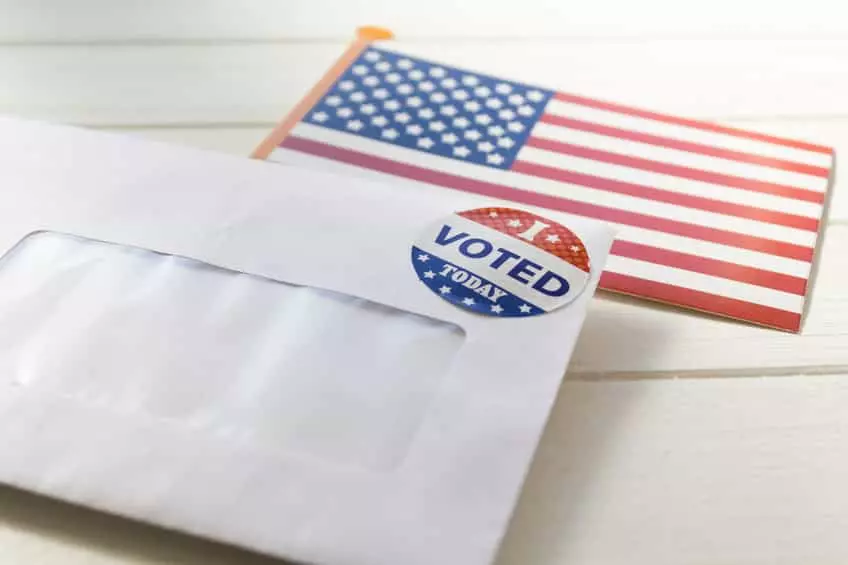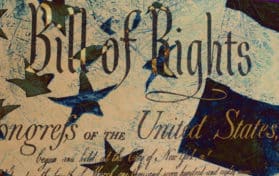
Two voting bills are being weighed currently in the Senate, and although both bills are unlikely to pass, the Biden Administration is pushing for a vote on the proposals.
The first bill up for consideration is the Freedom to Vote Act, which is a compromise bill drafted by Senate Democrats. Senate Dems have described it as such because both Senator Joe Manchin (D-WV) and Kyrsten Sinema (D-AZ) have both indicated that the will both vote “no” on bills that may require a change to the long-held tradition of the filibuster in the Senate in order to get close to the 51 votes that would be needed to pass the bill. This “nuclear option,” as it has come to be known, would only work if all 50 Senate Democrats vote in favor of the bill and Kamala Harris, Vice President, would have to cast the 51st “yea” vote that would break a tie in the Senate.
However, Manchin has already said that he would not support a more expansive voting bill that the House has passed, the For the People Act. It is noteworthy that the For the People Act includes many Democrat priorities, many of which Manchin has previously said he cannot support.
The second bill up for a vote is the John Lewis Voting Rights Advancement Act, and it is an update to the Voting Rights Act of 1965. This bill has already passed in the House. One Republican Senator, Lisa Murkowski (R-AK) sponsors this bill.
Nineteen states passed voting legislation that Democrats say is more restrictive in response to claims they say former President Donald Trump made regarding the 2020 election. Although Senate Majority Leader Chuck Schumer has said the Senate could vote on the two bills on the upcoming Martin Luther King, Jr. holiday, without the backing of at least ten Republican Senators, both bills are likely dead on arrival.
The Freedom to Vote Act is intended to set federal standards across the country so that voters have a similar access to voting in each state. All states would be required to provide a minimum of days of early voting as well as the ability to vote by mail for any reason. Some of the new guidelines adopted by the nineteen states in question would limit the amount of days for early voting as well as the hours during which people could cast a vote.
The Freedom to Vote Act also addresses mail-in voting, which is the point of contention for most Americans. In most states, mail-in voting has been limited to people with medical conditions that might prevent them from traveling to the poll to vote. Most of the nineteen states that enacted legislation regarding mail-in voting have put in certain restrictions for this type of ballot casting.
The Freedom to Vote Act also addresses voter ID, something already in place in many states. The proposed legislation relaxes some of the restrictions in place, such as what documents are acceptable as an ID as well as electronic copies of said documents.
In addition, the Freedom to Vote Act would make each federal election day a national holiday, so that more people could get to polling places. At the same time, some have warned that this part of the proposal could actually make it more difficult for those who might require child care or shift workers.
The bill also addresses long lines at voting polls, which they say disproportionately affects people of color. The Supreme Court gutted this provision in the Voting Rights Act in 2013; some claim that hundreds of polling places in the South have closed since this action took place.
Finally, the Freedom to Vote Act would provide penalties for those who attempt to intimidate voters or those who spread disinformation, something the Democrats has been rampant since 2020. The Freedom to Vote Act would also restore voting rights to people with felony convictions after they have been released from prison.
Voter registration is meant to become easier with the passage of these bills. Automatic registration would be a part of the process at the DMV, and voters could also register online if they wish to do so. Voter registration could also take place at the polls under the proposal.
The redrawing of voting districts in order to gerrymander the voting process would be outlawed under the proposal as well. Voters could also file suit in a federal court if they believe their right to vote had been infringed upon. Records of elections as well as paper ballots would be utilized under new regulations. Official audits would take place after elections in order to promote transparency.
Finally, taxpayer money could be utilized in the campaign coffers of those running for office.
The Voting Rights Act of 1965 would also be updated under the new voting legislation. This bill would update the formula by which state laws for voting are chosen for pre-clearance. States that had amassed fifteen or more violations of voting rights would now be subject to the process. Voting rights advocates could also file suit on behalf of those who are disproportionately harmed by a state’s voting rules. Finally, the bill would make it easier for Native American tribal members to vote on tribal lands by offering more polling sites on tribal lands.
Republicans fear not so much the voting rights bills themselves as they do the changes necessary in the Senate for either bill to have any chance of passing. That would include getting rid of the filibuster, something that has long prevented votes on certain bills. However, this is a precedent that Democrats should fear as well. If the 2022 mid-terms put the Republicans back in the majority – and most political pundits believe it will – then one side of the Senate could make sweeping changes to American laws on a partisan basis with no governing policy to stop them.
At present, it appears the voting rights bills will likely not pass in the Senate. Both Senators Manchin and Sinema have indicated they will not vote for the bills, and a third Democratic Senator is in isolation after testing positive for COVID-19. With only 47 votes, the bills are both dead.





